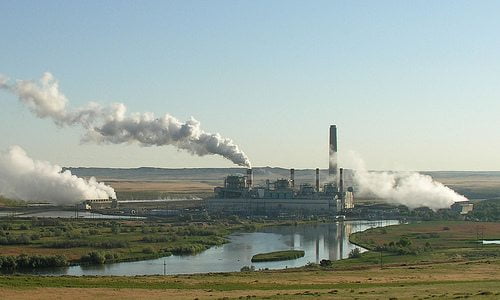

Energy
Problem of fossil fuel stranded assets a ‘real one’, says Tim Yeo
Conservative MP and chairman of the energy and climate change committee, Tim Yeo has said that the problem of stranded assets within the fossil fuel industry is real. The comments come as the chief executive of Shell said the current energy debate was “naïve”.
Speaking at the International Petroleum Week annual dinner, Ben van Beurden, head of Shell, claimed that the climate change debate often boiled down to “fossil fuels out, renewables in”, adding that this is a “naïve” view of a sustainable energy future. Van Burden argued that fossil fuels will need to underpin energy for decades to come and, as a result, the risk of stranded assets is minimal.
He also called on the fossil fuels industry to actively engage in the climate change debate, stating the sector “should be less aloof, more assertive”.
In response, Yeo has said the company should be wary as investors are increasingly considering the long term. According to the Guardian, Yeo said, “I do believe the problem of stranded assets is a real one now.
“Investors are starting to think by 2030 the world will be in such a panic about climate change that either by law or by price it will be very hard to burn fossil fuels on anything like the scale we are doing at the moment.”
He continued that fossil fuel companies should consider potential incoming regulation as the world moves to a low-carbon future. Yeo explained, “There may well be national [carbon] performance standards. There may well be caps everywhere. We now have a nuclear non-proliferation treaty, we may have then a coal-fired power station non-proliferations treaty and you can monitor these things externally.
“Or we may have a carbon prices at $50 and investors think ahead so they think the world will have to be a low carbon one in the 2030s and pension funds with 25 year time horizons must take this into account. So the oil companies and gas companies have to recognise this.”
The term ‘stranded assets’ comes from the theory that fossil fuel companies will have assets or reserves that they cannot use once the need to tackle climate change is factored in. Governments are increasingly imposing tougher regulations, potentially meaning that companies and investors will lose out if fossil fuel assets cannot be used.
A recent study suggests that a third of oil reserves, half of gas reserves and over 80% of current coal reserves must not be used before 2050 if global warming is to stay below 2C.
Photo: Greg Goebel via Flickr
Further reading:
Shell chief exec calls on industry to engage in climate debate
Study: majority of fossil fuel reserves must remain unburnt
Investors warned of ‘stranded’ carbon assets and working condition risks
Report says investing in fossil fuels is a ‘very risky decision’
Carbon Tracker’s latest analysis is a warning to fossil fuel investors everywhere


 Environment12 months ago
Environment12 months agoAre Polymer Banknotes: an Eco-Friendly Trend or a Groundswell?

 Features11 months ago
Features11 months agoEco-Friendly Cryptocurrencies: Sustainable Investment Choices

 Features12 months ago
Features12 months agoEco-Friendly Crypto Traders Must Find the Right Exchange

 Energy11 months ago
Energy11 months agoThe Growing Role of Solar Panels in Ireland’s Energy Future






























